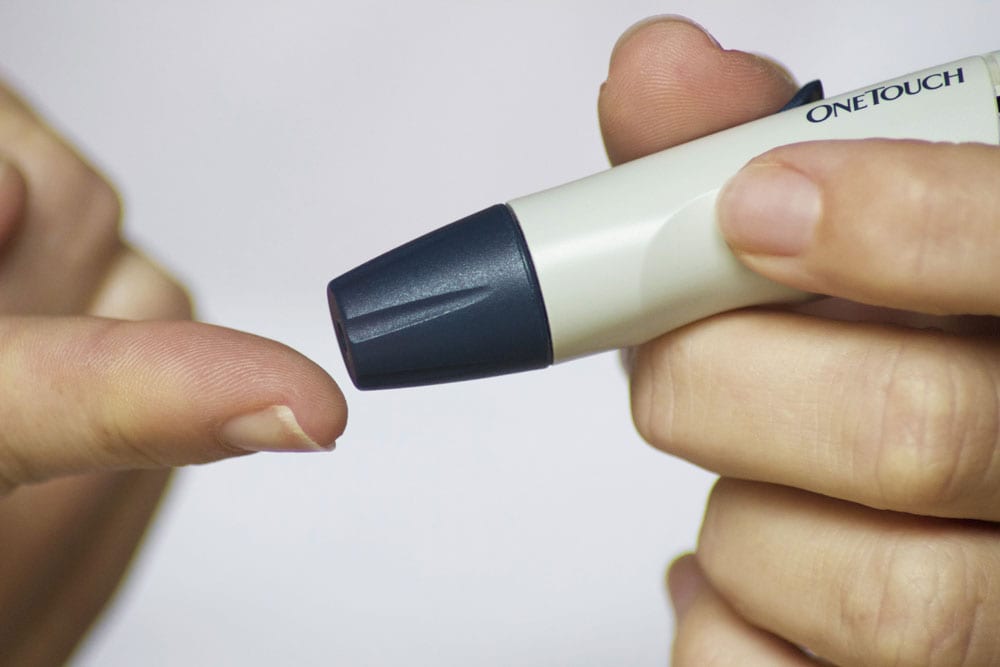The incidence of diabetes is on the rise with more consumption of processed and sugar rich food and the vast majority of diabetes patients also suffer from high blood pressure. So, what is diabetes? It is a non-contagious, disease due to problems with insulin production resulting in sustained high blood sugar. Insulin is the hormone produced by the pancreas to remove sugar from the blood to the liver when there is excess sugar in the blood. The sugar from excessive dietary intake is stored as fat. Diabetes gives rise to many health complications such as heart disease, risk of stroke, nerve disorder, infections and dental diseases too, which can be especially dangerous in their condition. Diabetes patients have to take extra care to avoid dental problems. Their high glucose levels often trigger plaque deposits on teeth and lead to tartar formation, which can quickly advance into dental caries if left untreated. Regular visit to the family dentist by diabetes patients are especially vital in helping them manage common dental problems like mouth ulcers and infection.
Major Dental Diseases That Diabetes Patients Suffer From
Gingivitis- is an inflammatory condition of the gums. They become red, swollen, and painful from gum infection. There may be some gum bleeding too due to reduced resistance to infection from bacterial plaque present on the tooth surfaces.
Periodontal disease – is an advanced inflammatory disease affecting the supporting tissues of the teeth, including gums, ligament and jaw bone. There may be loose teeth, bleeding, pus, swelling of the gums. Diabetes patients are more susceptibility to periodontal disease, and it is the most common oral complication among patients suffering from this condition.
Salivary gland dysfunction and xerostomia- what is commonly referred to as dry mouth: The salivary gland functions are impaired among diabetes patients, which results in reduced flow of saliva and dry mouth This leads to tooth decay, poor denture bonding, oral mucosa, yeast infection, ulcers and loss of taste buds. Diabetics often experience difficulty in eating and poor nutrition.
Dental Care Tips For Diabetics
Diabetics must always keep up with their medical treatment to control their blood sugar levels.
The dentist can refer diabetes patients to doctors for additional evaluation and is very often the first medical practitioner the diabetic sees.
Diagnosed diabetic patients must be identified by their history and a thorough evaluation of their medications, diet regimen, degree of sugar control, must be made for any systemic complications resulting from diabetes to be established.
Regular blood checks are absolutely vital in monitoring good and bad glucose levels in the body and it can help in preventing dental problems.
Needless to say, it is absolutely essential for diabetes patients to brush twice every day, and floss regularly to remove all food particles and control build-up of plaque.
Diabetes patients should preferably receive short morning dental appointments to reduce their stress, which can lead to sugar level fluctuations. They may need anesthesia for dental treatment to reduce stress released epinephrine.
Diabetes patients should get supportive teeth cleaning within two to three months to prevent periodontal disease. Periodontal infections often increase the severity of diabetes mellitus and prevent metabolic control of blood sugar.
Dental caries should be restored properly to prevent spread of dental infections and missing teeth must be replaced to avoid teeth re-alignment. Splinting can prevent teeth from drifting when they become loose due to periodontal disease.
Dry mouth should be addressed with the recommended use of saliva substitutes and stimulants to reduce the risk for dental caries from reduced saliva production. Yeast infection from dry mouth can be treated with antifungal drugs as well. Often, oral topical anesthetics help with symptomatic relief from burning mouth syndrome.
Diabetes patients should stop cigarette smoking and alcohol consumption, as both lead to vascular complications and oral cancer. Diabetes patients should also monitor their cholesterol and triglycerides levels at dental clinic to avoid diseases related to gums and tongue.
Nutritional counseling can help control the intake of dietary sugars and foods with a high glycaemic index to keep sugar levels in check. Avoid food items that have starch or sugar in them and include fresh fruits and vegetables in the diet.




